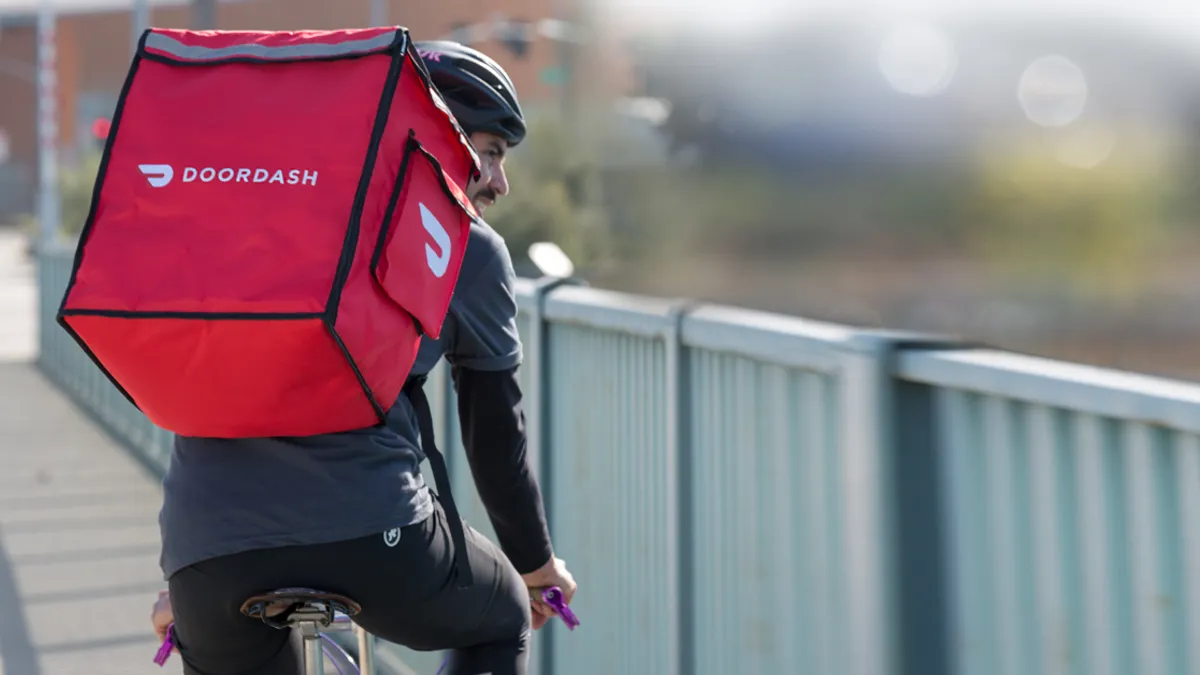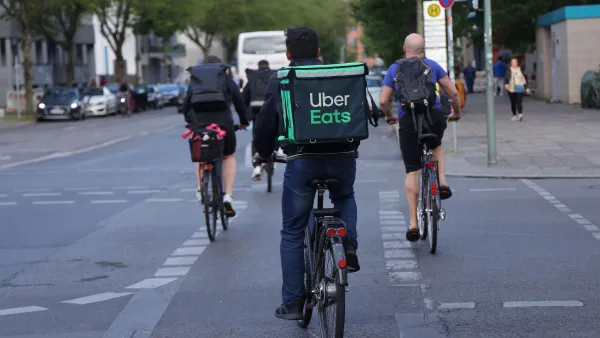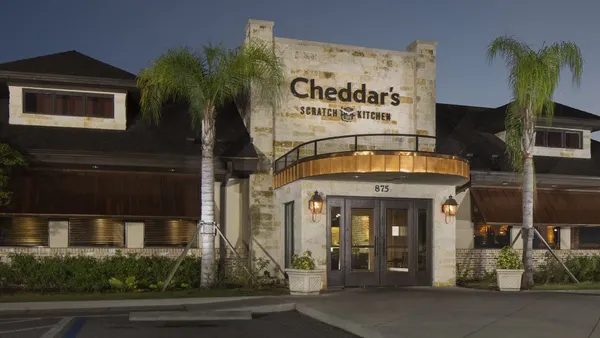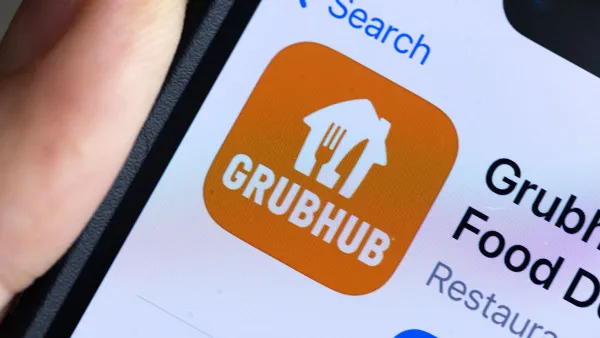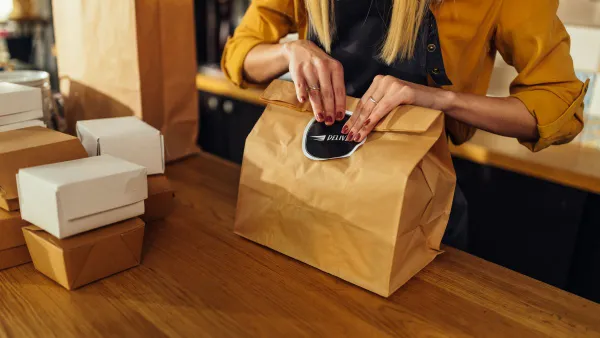UPDATE: Sept. 28, 2020: This article has been updated to include a statement from DoorDash.
Dive Brief:
- Lona's Lil Eats in St. Louis accused DoorDash of driving business away from restaurants not listed on its platform by falsely claiming they're either closed or out of delivery range, according to a lawsuit filed in the U.S. District Court for the Northern District of California. The restaurant has no established relationship with DoorDash, but has a page on the delivery company's website.
- The restaurant alleges that customers can't order delivery through that page, however, because it is listed as being too far away or closed. The suit further alleges DoorDash is using such "deceptive information" to redirect orders to its own partners who pay a commission to the company. The plaintiff is seeking a class-action classification with the objective of getting other non-partner restaurants listed on DoorDash involved.
- Non-partner restaurant listings have become common practice among food delivery leaders, but restaurants and regulators have long criticized the practice, and this latest lawsuit is one of a handful that have cropped up in recent years. The practice has also led California to pass a law barring companies from adding restaurants without a written agreement.
Dive Insight:
In the lawsuit, the plaintiff states DoorDash's "behavior is particularly troubling in the context of the COVID-19 pandemic. At a time when many restaurants — and in particular locally owned restaurants (as opposed to national chains) — are struggling to stay open and have been forced to radically change their business model to survive, DoorDash is engaged in predatory, deceptive and anticompetitive behavior that takes unfair advantage of their market position."
In an emailed statement, a DoorDash spokesperson said,"At no time was DoorDash intentionally steering customers away from any restaurant. We have previously addressed the technological issue on our platform that arose from the difficulty in tracking restaurant closures as a result of the pandemic, which impacted a small number of merchant partners and non-partners alike."
The company added that it will "remain committed to supporting the merchant community and demonstrating the value of the DoorDash platform."
DoorDash and Postmates have received complaints in the past few years over wrong menu items and food quality that restaurant operators can’t easily address. DoorDash faced a lawsuit from In-N-Out in 2015, where the burger chain claimed the platform was damaging its brand by offering delivery of its menu items. In 2018, a restaurant in Chicago also sued DoorDash for trademark infringement for using its logo and selling food on its platform without permission.
Uber Eats is also pursuing non-partner restaurants to drive growth, and will continue to build this volume this year, Uber CEO Dara Khosrowshahi said during the company's Q4 2019 earnings call. As of February, non-partner restaurants make up a "very small percentage" of Eats' overall volume.
Grubhub, which also lists non-partner restaurants on its platform, said in a statement emailed to Restaurant Dive last week that partnered restaurant relationships are the best strategy for lasting growth.
"We've long advocated that partnering with restaurants is the best way to create a positive experience for restaurants, diners and drivers," a Grubhub spokesperson said. "Some companies built their businesses by listing non-partner restaurants on their platforms and delivering food without an agreement so they could expand their restaurant supply, but this strategy fails to drive long-term value in the food delivery industry."
A lot is at stake for non-partner restaurants listed on major marketplaces without their knowledge. In the case of Lona’s Lil Eats, consumers could get fed up with the lack of availability listed on the biggest delivery platform, causing confusion or reputational damage. If there is a food safety issue, the risk is even higher.
But delivery companies are starting to face regulatory backlash. California's new law requires aggregators to sign formal, written agreements with restaurants before adding them to their marketplaces and providing delivery. DoorDash said it will fully comply with the new rule and "continue to demonstrate the value of DoorDash and the variety of options we provide to support our merchant partners."
Three members of the U.S. House of Representatives also recently asked the Federal Trade Commission to investigate delivery companies for market consolidation and deceptive business practices, including "creating fake phone numbers and websites for restaurants and offering delivery services without restaurants’ consent."


